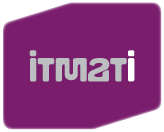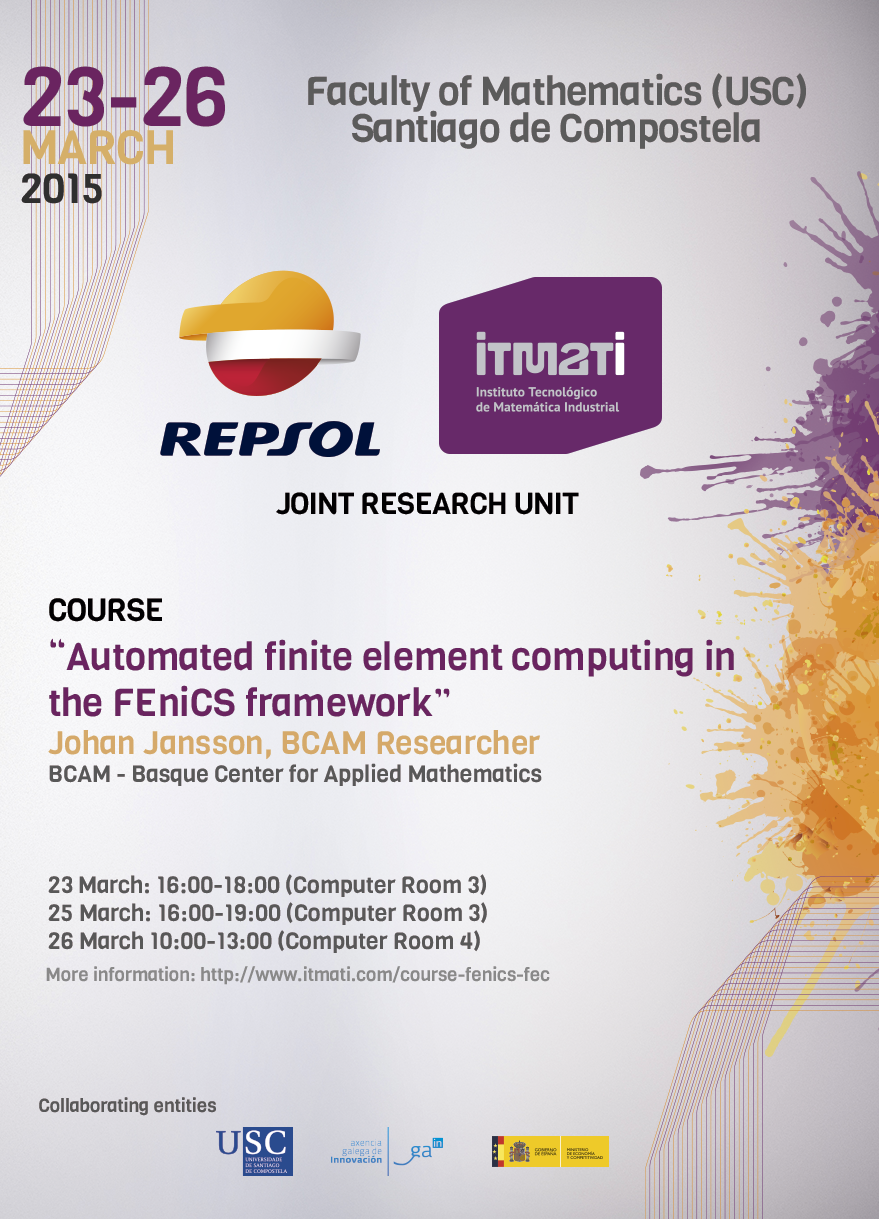Course: "Automated finite element computing in the FEniCS framework"
From 23, 25 and 26 of March, Johan Jansson (BCAM researcher) will visit ITMATI to give the couse: "Automated finite element computing in the FEniCS framework".
- ABSTRACT:
Basic laws of nature are typically expressed in the form of partial differential equations (PDE), such as Navier's equations of elasticity, Maxwell's equations of electromagnetics, Navier-Stokes equations of fluid flow, and Schrödinger's equations of quantum mechanics. The Finite element method (FEM) has emerged as a universal tool for the computational solution of PDEs with a multitude of applications in engineering and science. Adaptivity is an important computational technology where the FEM algorithm is automatically tailored to compute a user specified output of interest to a chosen accuracy, to a minimal computational cost.
Developing multiphysics finite element methods (FEM) and scalable High-Performance Computing (HPC) implementations can be very challenging in terms of software complexity and performance, even more so with the addition of adaptive error control. To manage the complexity we in this course will learn about general adaptive methods and the FEniCS automated open source software framework taking the weak form of the PDE as input in near-mathematical notation and automatically generating low-level source code for assembling tensors and a posteriori error estimates and indicators for adaptive error control. Other key concepts in the course are automateddifferentiation for treating non-linear problems and a transparent and scalable HPC implementation.
We will demonstrate the concepts in the course on a range of applications, and analyze a large-scale application to adaptive computation of aerodynamic forces on a full aircraft at take-off and landing with good match to experiments.
- INFORMATION FOR THE PRACTICAL PART:
The practical part of the course will require the use of the Simtek platform; PCs in the computer rooms will be ready to connect to Simtek. If anybody want to bring his own laptop, he must check whether ParaViewWeb (http://paraviewweb.kitware.
-
PROGRAM:
| Date | Place | Timetable | Contents |
| Monday 23, March | Computer Room 3 | 16:00-18:00 |
Intro to FEM, FEniCS,Key concepts of FEniCS. |
| Wednesday 25, March | Computer Room 3 | 16:00-19:00 |
Demo and hands-on of FEniCS (Part 1) Adaptive a posteriori error control, General stabilized methods, Demo and hands-on of adaptivity, application to Navier-Stokes. |
| Thursday 26, March | Computer Room 4 | 10:00-13:00 |
Demo and hands-on of FEniCS (part 2) High-performance computingTurbulence, Large-scale application to aerodynamics |
- REGISTRATIONS: You can confirm your registration in itmati@itmati.com
- Limited Places. Registration Deadline: Thursday 19, March at 14.00 h.
- NOTE REMINDER:
The rooms where the course will take place have computers, if the number of entries exceeds 20, there is the possibility of sharing computer every 2 people. It is recalled that there is no objection if someone want to take his own computer, but you should verify that it allows execution of ParaView Web (http://paraviewweb.kitware.
A certificate of attendance for those who request it be delivered.









